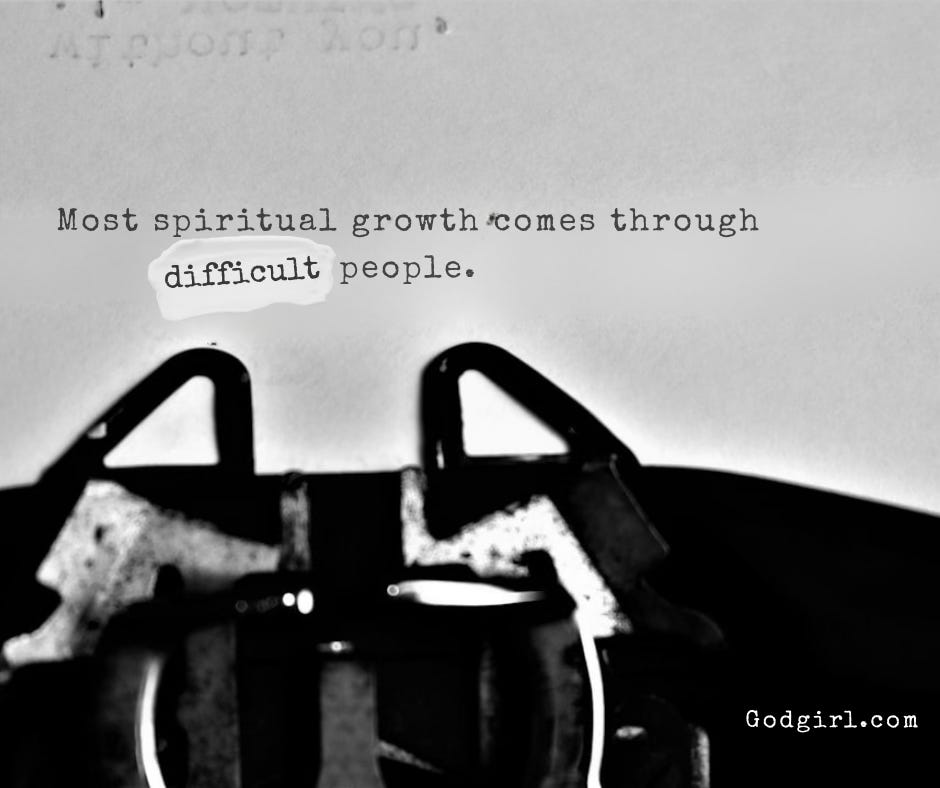Discomfort as Discipleship
the spiritual benefit of difficult people
When we see the struggles, limitations, or failures of others, whether it’s a child who thinks differently, a coworker who works slowly, or a neighbor whose political views frustrate us, we can easily react in one of two ways: anger or anxiety.
Anger says, “They should be better. They’re making my life harder.”
Anxiety says, “What if they never change? What does this mean for me? For them? For the world?”
Both reactions are, at their core, misplaced. They focus on what should be rather than what is. In other words, they center on us, our inconvenience, our discomfort, rather than seeing the person in front of us.
But there’s a third option, and that is to meet the moment not with anger or anxiety, but with love and openness to what God is doing through it.
What exists is what God has allowed to exist. It’s what He has entrusted to us in this moment. When we fixate on what should be, how this person should think, how they should behave, how they should function, we risk rejecting the very reality God has given us to love.
Of course, there is a place for justice, for standing up when someone is being harmed or oppressed. But that’s not what I’m talking about here.
I’m talking about the daily inconveniences, the driver who blocks the left lane going ten under, the friend who repeats the same story for the fourth time, the spouse who leaves tasks half-finished, the acquaintance who monopolizes the conversation. The ordinary frictions that chip away at our ease.
When our reactions to this kind of discomfort are anger or anxiety, it reveals something about us: That we see them as a problem to fix rather than a person to love. And that we subconsciously think that God’s handiwork in them is somehow defective. Something I know you would never say out loud, or even want to think, but it’s there in all of us, isn’t it?
Like a crying child in the middle of a meltdown, the people who challenge us most often expose something unhealed in us, not just something difficult in them.
Their discomfort triggers our discomfort. Their chaos stirs up our own need for control, predictability, or ease. And when we rush to correct or avoid them, we’re often just trying to silence what’s surfacing in ourselves.
But what if we were to believe that this situation is precisely where God is moving? That this moment is an invitation to grow, to love, to let Him shape us into people who don’t just tolerate others but cherish them, differences and all.
Every time we feel anger or anxiety rise up in us, it’s an opportunity to ask, “Why does this bother me so much? What is it in me that feels threatened, inconvenienced, or offended? And, what does God want to teach me here—about patience, humility, or letting go of my need for control?”
When we stop seeing other people’s struggles as personal attacks and start seeing them as training grounds for our own growth, everything changes.
Instead of resentment, we grow into resilience. Rather than bitterness, we express understanding. And instead of allowing our hearts to be hardened, we gain a heart that looks a little more like Jesus.
Because, in the end, these moments aren’t just about them. They’re about what God is doing in us, teaching us to die to self, to surrender our preferences, and to love as He loves.
When we demand that someone change just because they inconvenience us, we’re not just fighting them. We’re fighting God’s process. And we’re missing the beautiful, humbling, sanctifying work He wants to do in us through them.
In the end, this isn’t just about surviving difficult people; it’s about becoming more like Jesus. This is discomfort as discipleship.
Lord, help me see others not as obstacles to my comfort but as opportunities to love like You do.




You are so right little Missy!! Exactly what I needed this AM. Its so easy to see it only from our point of view, and overlook what Go is doing in their lives. Help me always to love you Jesus and see others through your eyes.
“When we stop seeing other people’s struggles as personal attacks and start seeing them as training grounds for our own growth, everything changes.” I needed this powerful challenge!